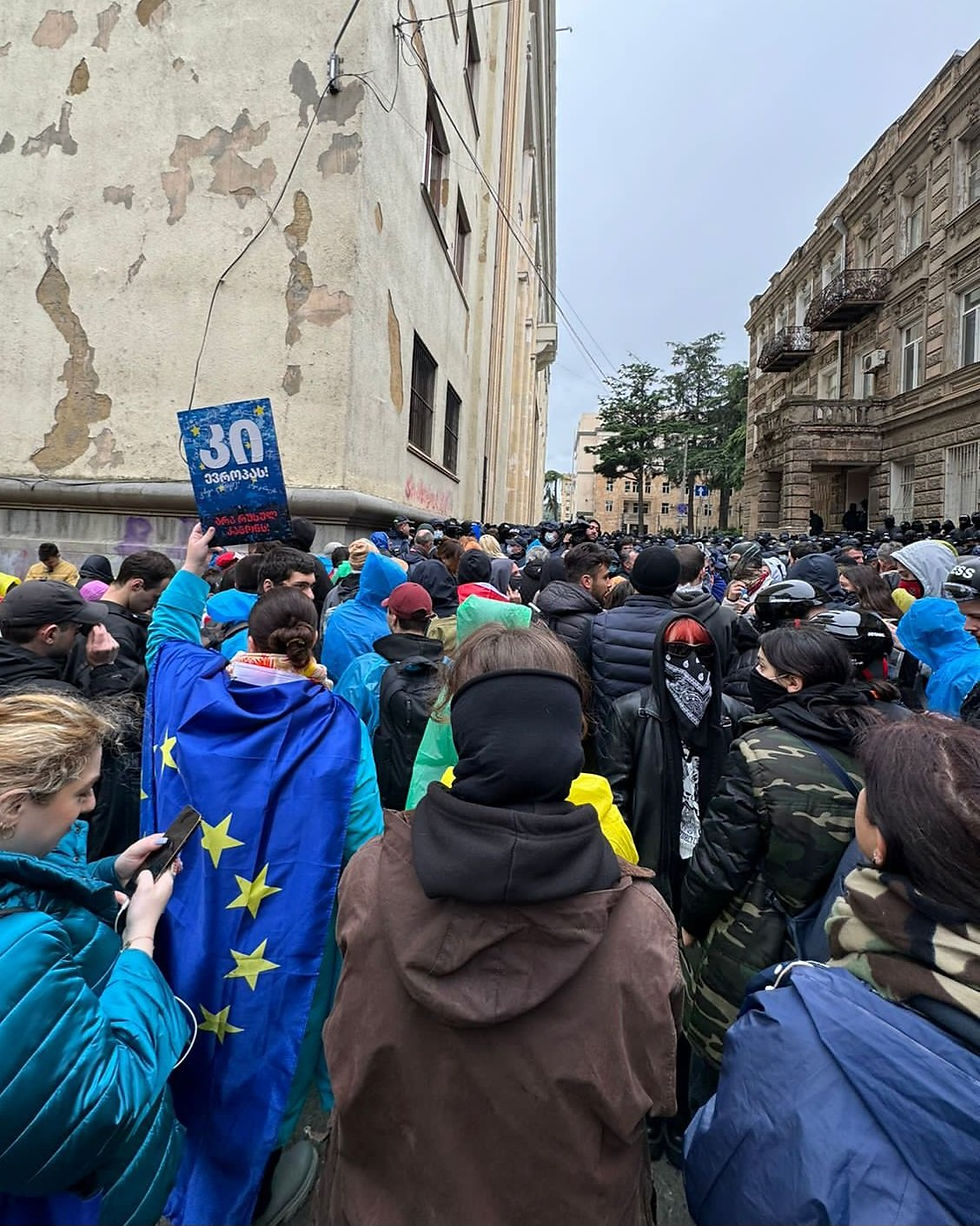The recent enactment of Georgia's 'Foreign Agents' law by the Parliament is not only a legal development but also a significant event with far-reaching implications. This law, which has stirred controversy both domestically and internationally, is poised to cast a chilling shadow over various sectors of Georgian society, including civil society organizations, journalists, and human rights advocates. The concerns raised by UN experts highlight not just the immediate consequences of the law but also the broader implications for Georgia's commitment to human rights.
What is the Law About?
Every media company, news outlet, and civil organization that receives funding from foreign sources exceeding 20% of their total donations and investments must disclose the origin of such funds.

The context surrounding the passage of this law adds layers to its significance. Despite the withdrawal of a similar draft in response to widespread protests in March 2023, the Parliament chose to reintroduce and expedite a new version of the Law on Transparency of Foreign Influence in April 2024. This decision, made in apparent contradiction to prior assurances given to UN representatives, raises questions about the government's responsiveness to public opinion and its commitment to transparency and democratic processes.
On May 8, 2024, the State Security Service of Georgia issued a statement on Facebook accusing the protesters of planning the “Maidanization” of Tbilisi.
The expedited passage of the law through Parliament is particularly alarming due to the lack of transparency and inclusivity in the decision-making process. The absence of meaningful consultation with civil society organizations, opposition parties, and the wider public undermines the legitimacy of the law and raises concerns about the erosion of democratic principles in Georgia.
At the heart of the controversy surrounding the 'foreign agents bill' is its requirement for media and non-governmental organizations to register as representing foreign interests if they receive a significant portion of their funding from abroad. This provision has been criticized as a thinly veiled attempt to suppress independent voices and stifle dissent, effectively curtailing freedom of expression and association in Georgia.

The opposition's denouncement of the legislation underscores the polarizing nature of the law and its potential impact on political discourse and civic engagement in the country. By framing dissenting voices as agents of foreign influence, the law not only marginalizes legitimate opposition but also creates a climate of fear and suspicion that undermines the foundations of democracy.
UN experts have expressed their concerns about the law's implications for human rights in Georgia, warning that its enactment would place the country in violation of its international obligations. The escalation of violence against peaceful protesters by security forces further underscores the erosion of civil liberties and the shrinking space for dissent in the country.
“We are shocked that even in light of clear opposition by a significant segment of Georgia’s people, the law was expedited through Parliament with media and civil society representatives denied access to the proceedings,” --Says UN Experts appointed to review the situation
What protesters Say?

The Georgian parliament has passed a contentious law that imposes stricter scrutiny and higher penalties on organizations receiving foreign funding. Under this law, any entity, including media outlets and NGOs, must register as "representing the interests of a foreign power" if they receive more than 20 percent of their funds from overseas. The opposition has dubbed the legislation as "the Russian law," likening it to measures employed by Moscow to suppress independent media and discredit activists.
"Today's parliamentary session was held under extraordinary and unusual conditions. With a yellow-level security alert in effect, deputies, staff, and journalists were compelled to exit the parliament building as quickly as possible, Says Euronews Georgia journalist Aleko Gvetadze
In conclusion, the passage of the 'Foreign Agents' law represents a significant turning point in Georgia's political landscape, with implications that extend far beyond its immediate legal ramifications. It calls into question the government's commitment to democratic values and human rights, while also highlighting the challenges facing civil society and independent media in the country.
Key Points:
Enactment of the 'Foreign Agents' Law: Georgia's Parliament recently passed a controversial law tightening regulations and penalties on organizations receiving funds from abroad, sparking domestic and international debate.
Requirement for Disclosure: Under the law, media outlets, news agencies, and civil organizations must disclose any foreign funding exceeding 20% of their total donations and investments.
Context of Passage: Despite prior protests leading to the withdrawal of a similar draft in 2023, the Parliament reintroduced and expedited the law in April 2024, raising concerns about democratic processes and government accountability.
Absence of Transparency: The swift passage of the law lacked transparency and inclusive consultation with civil society and opposition parties, undermining its legitimacy and democratic principles.
Controversial Provisions: Critics argue that the law's requirement for registration as 'representing foreign interests' stifles dissent and curtails freedom of expression and association, particularly targeting independent voices.
Opposition's Response: The opposition has criticized the law as reminiscent of measures used by Moscow to suppress independent media and activists, dubbing it "the Russian law."
UN Experts' Concerns: UN experts have raised concerns about the law's implications for human rights, warning of potential violations and the erosion of civil liberties.
Escalation of Tension: The passage of the law has intensified tensions, with accusations of planning for 'Maidanization' of Tbilisi and reports of heightened security measures during parliamentary sessions.
Media and Civil Society Restrictions: Media and civil society representatives faced challenges in accessing parliamentary proceedings, raising further concerns about transparency and accountability.
Broader Implications: The enactment of the 'Foreign Agents' law signals a significant shift in Georgia's political landscape, prompting questions about the government's commitment to democracy and human rights, and posing challenges to civil society and independent media.
Thanks for Visiting!!
Refrence: Euronews, CNN, UN, Al jazeera

Comments